The Professional Reading Series promotes the idea that effective, student-centered teaching and learning requires a commitment not only to improving and assessing one’s daily practice but, also, to dedicating time and energy to reading and reflecting upon pedagogical best practices and emerging educational technologies, and remaining conversant with the latest scholarship of teaching and learning research.
If faculty or staff are interested in facilitating a school, department or learning community reading series under the sponsorship of the CEITL&DE, please contact jhigdon@citadel.edu.
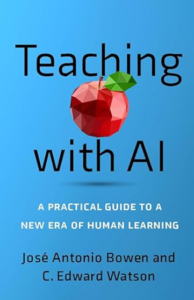
Fall 2024 & Spring 2025
Artificial Intelligence in Education: A Practical Guide to a New Era of Human Learning explores the revolutionary impact of AI on learning, work, and thought. Its integration into classrooms and workplaces is already underway, challenging traditional notions of creativity, authorship, and education. This groundbreaking and practical guide helps teachers harness and manage AI as a powerful teaching tool. It presents emerging research on the significant changes AI is creating in schools and the workplace, offering valuable insights into AI’s potential in the classroom and beyond.
Previous Selections in the Professional Reading Series
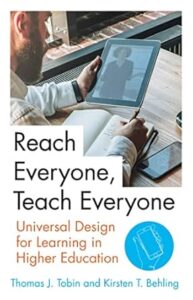
Spring 2024
Reach Everyone, Teach Everyone is aimed at faculty and staff members who want to strengthen the engagement, interaction, and performance of all college students. It includes resources for readers who want to become UDL experts and advocates: real-world case studies, active-learning techniques, UDL coaching skills, micro- and macro-level UDL-adoption guidance, and use-them-now resources.
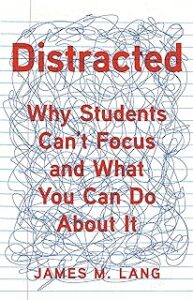
Fall 2023
Distracted: Why Students Can’t Focus and What You Can Do About It rethinks the practice of teaching, revealing how educators can structure their classrooms less as distraction-free zones and more as environments where they can actively cultivate their students’ attention.
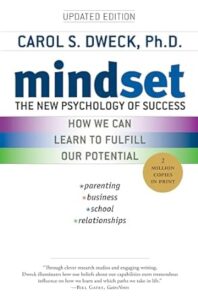
Spring 2023
Mindset: The New Psychology of Success discusses the simple but groundbreaking idea: the power of mindset. Research has shown that it’s possible to teach students how to develop a growth mindset – as a result, student engagement and performance can markedly improve.
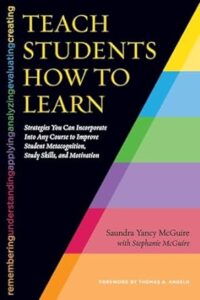
Fall 2022
Teach Students How to Learn gives instructors strategies they can incorporate to teach students how to learn so they can significantly increase their learning and performance and create students who begin to think critically and take responsibility for their learning.
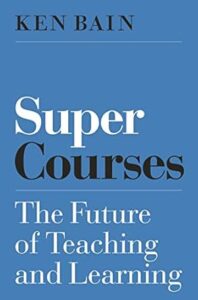
Fall 2021
Super Courses: The Future of Teaching and Learning tells the fascinating story of enterprising college, graduate school, and high school teachers who are using evidence-based approaches to spark deeper levels of learning, critical thinking, and creativity―whether teaching online, in class, or in the field.
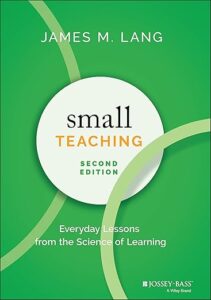
Spring 2021
Small Teaching Online explores the unique challenges of online instruction and provided opportunities for faculty to share small teaching strategies they incorporate into their online classrooms.
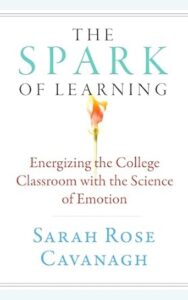
Spring 2020
The Spark of Learning: Energizing the College Classroom with the Science of Emotion argues that emotions are key to effective learning, challenging the traditional view of education as a purely unemotional endeavor. Sarah Rose Cavanagh draws on psychology and neuroscience to show how educators can leverage emotions to improve student engagement, memory, and motivation, offering practical examples for classroom application.
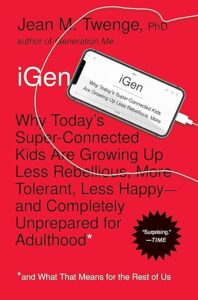
Fall 2019
iGen: Why Today’s Super-Connected Kids Are Growing Up Less Rebellious, More Tolerant, Less Happy–and Completely Unprepared for Adulthood–and What That Means for the Rest of Us explores the unique characteristics of today’s hyper-connected generation. It examines how constant connectivity impacts their development, leading to both positive and negative outcomes, and considers the implications for society as a whole.
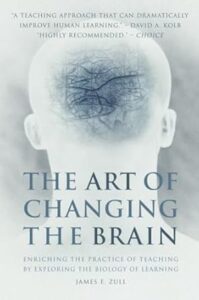
Spring 2019
The Art of Changing the Brain explores how neuroscience can inform and reshape teaching practices. James Zull explains, in clear and accessible language, how learning physically alters the brain by changing synapses, offering a powerful foundation for rethinking teaching philosophy. He connects brain function and structure to the realities of the classroom, providing practical guidance for creating effective and lasting learning experiences while addressing the challenges of individual student needs.
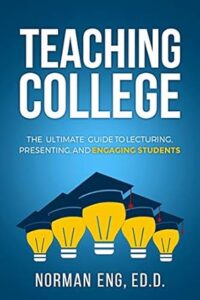
Fall 2018
Teaching College: The Ultimate Guide to Lecturing, Presenting, and Engaging Students offers a blueprint for effective college instruction, particularly for early-career instructors. This practical guide provides easy-to-implement strategies to engage students, improve participation, and enhance learning outcomes, covering topics from syllabus design and active learning techniques to compelling presentations and motivating students to complete readings.
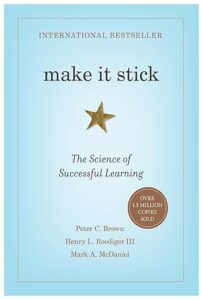
Spring 2018
Make It Stick: The Science of Successful Learning challenges conventional wisdom about learning, arguing that “learning the hard way” is often the most effective. Drawing on cognitive psychology research, the authors reveal how counterintuitive strategies like self-testing and spaced repetition lead to more durable learning than common practices like highlighting and rereading. This book offers practical techniques and real-world examples to help students, educators, and parents unlock the secrets of effective learning and lifelong self-improvement.
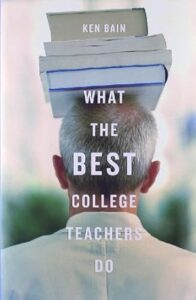
Fall 2017
What the Best College Teachers Do explores the qualities that define exceptional educators, drawing on a fifteen-year study of nearly one hundred college professors. Ken Bain argues that deep subject matter knowledge is essential, but even more crucial is how teachers understand their discipline, value learning, and engage students. Through inspiring stories, this book offers valuable insights for educators at all levels, highlighting the importance of believing in both teaching and student potential.
